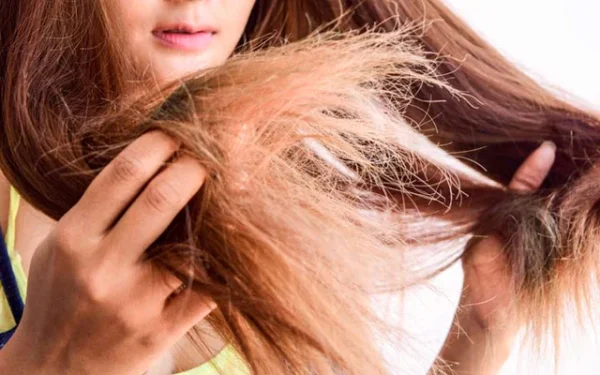
Many people struggle with dry hair, which can be quite frustrating and make their hair lose its natural shine. There are several factors that can contribute to dryness, such as excessive heat styling, harsh weather conditions, overwashing, or simply genetics. But don’t worry, there is still hope. You can bring back your hair’s moisture, shine, and vitality by giving it the proper care and treatment. Let’s explore some effective treatments for dry hair to help you restore your silky, smooth strands.
Causes of Dry Hair
1. Overwashing: When you wash your hair too often, it can remove the natural oils that keep it moisturized, resulting in dryness.
2. Heat Styling: Using heat styling tools like blow dryers, straighteners, and curling irons too often can harm the hair cuticle and make it lose moisture.
3. Chemical Treatments: Use of chemical treatments like perms, relaxers, and hair dyes have harsh chemicals that can strip the hair of its moisture.
4. Environmental Factors: There are several environmental factors that can have an impact on various aspects of our lives. When your hair is exposed to the sun, wind, and dry air, it can lose moisture and become dry and brittle.
5. Poor Diet: A poor diet can lead to dry and lackluster hair. This is because nutritional deficiencies, especially in vitamins A, C, D, and E, as well as omega-3 fatty acids, can play a role in the health of your hair.
Effective Treatments for Dry Hair
To get rid of dryness, it’s important to take a multi-faceted approach that focuses on hydrating and nourishing your hair from the inside out. Here are a few treatments that you might find helpful:
Moisturizing Shampoos and Conditioners:
Choose sulfate-free products for moisturizing shampoos and conditioners that are made especially to moisturize and repair dry hair. When you’re searching for products, keep an eye out for ingredients such as glycerin, shea butter, and argan oil. These ingredients are great because they help your skin or hair retain moisture and improve its elasticity.
Deep Conditioning Masks:
Using deep conditioning masks once a week or every two weeks can do wonders for dry hair. When selecting masks, go for ones that have ingredients like coconut oil, avocado oil, or keratin. These ingredients are great for repairing damage and replenishing moisture in your hair.
Leave-In Conditioners:
Lightweight leave-In Conditioners are great for adding an extra layer of moisture and protection to your hair, especially if you have dry or damaged ends. You can apply them to either damp or dry hair, and they will help detangle, smooth, and nourish your strands all day long.
Hot Oil Treatments:
Hot oil treatments have been used for a long time as a remedy for dry hair. Many people love using coconut oil, olive oil, and argan oil because they are known for their ability to moisturize and strengthen the hair. To use the oil, start by heating it up. Then, gently apply it to your hair and scalp. Let it sit for about 30 minutes to an hour. After that, you can wash your hair with shampoo and conditioner as you normally would.
Scalp Massage:
A regular scalp massage can help stimulate blood flow to your hair follicles, which in turn promotes healthy hair growth and helps distribute natural oils along your hair shaft. Before shampooing, you can use your fingertips to give your scalp a gentle massage for a few minutes.
Limit Heat Styling:
Minimize the amount of heat styling you do to your hair. It’s best to use heat styling tools sparingly. And when you do use them, make sure to apply a heat protectant spray or serum beforehand to protect your hair. It’s a good idea to let your hair dry naturally whenever you can. You can also try styling it without using heat by braiding or twisting it.
Protective Styling:
Braids, twists, buns, and other similar styles, can be beneficial for your hair. These styles help protect your hair from damage caused by the environment and also minimize manipulation, which can cause breakage and dryness.
Healthy Diet and Hydration:
Make sure to maintain a healthy diet that includes a good balance of vitamins, minerals, and protein. This will help support the overall health of your hair. Make sure to drink lots of water to keep yourself hydrated, which will also help keep your hair healthy.
Frequently Asked Questions About Treatments for Dry Hair
1. What are the main causes of dry hair?
Dry hair can be caused by various factors including overwashing, heat styling, chemical treatments, environmental factors, and poor diet. These factors can strip the hair of its natural oils, leading to dehydration and brittleness.
2. How can I tell if my hair is dry?
Dry hair often appears dull, rough, and frizzy. It may feel brittle to the touch and be more prone to breakage and split ends. Additionally, dry hair may lack shine and elasticity, and it may have a straw-like texture.
3. Can I treat dry hair at home?
Yes, there are several home remedies and treatments that can help improve dry hair. These include using moisturizing shampoos and conditioners, applying deep conditioning masks, using hot oil treatments, and incorporating leave-in conditioners into your hair care routine.
4. How often should I deep condition my hair?
It is generally recommended to deep condition your hair once a week or every other week, depending on the severity of your dryness. However, if your hair is extremely dry or damaged, you may benefit from more frequent deep conditioning treatments.
5. Are there any natural remedies for dry hair?
Yes, several natural ingredients can help hydrate and nourish dry hair. These include coconut oil, olive oil, avocado oil, honey, aloe vera, and yogurt. These ingredients can be used in various DIY hair masks and treatments to restore moisture and shine.
6. Can I use heat styling tools on dry hair?
While heat styling tools can further damage dry hair, they can still be used sparingly with proper precautions. Always use a heat protectant spray or serum before applying heat, and try to minimize the use of heat styling tools to prevent further dehydration and damage.
7. How long does it take to see results from treatments for dry hair?
The time it takes to see results from treatments for dry hair can vary depending on the severity of the dryness and the effectiveness of the treatments used. In general, consistent use of hydrating and nourishing products can lead to noticeable improvements in the condition of your hair within a few weeks to a few months.
8. Can diet affect the health of my hair?
Yes, diet plays a significant role in the health of your hair. A balanced diet rich in vitamins, minerals, and protein is essential for maintaining healthy hair. Make sure to include foods that are high in omega-3 fatty acids, vitamins A, C, D, and E, and biotin to support hair health from the inside out.
9. Is it possible to over-moisturize my hair?
Yes, it is possible to over-moisturize your hair, which can lead to a condition known as hygral fatigue. This occurs when the hair absorbs too much water, causing the hair shaft to swell and weaken over time. To prevent over-moisturizing, use hydrating products in moderation and balance them with strengthening treatments.
10. When should I consult a professional for help with my dry hair?
If you have tried various treatments for dry hair and have not seen any improvement, or if your dryness is accompanied by other symptoms such as itching, scalp irritation, or hair loss, it may be time to consult a professional hairstylist or dermatologist. They can help diagnose any underlying issues and recommend appropriate treatments for your specific needs.
Conclusion
Dealing with dry hair can be quite frustrating, but it’s definitely something that can be overcome. You can bring back moisture, shine, and vitality to your hair by including the appropriate treatments and practices in your hair care routine. If you want to give your hair a boost and make it look and feel amazing, there are many options to choose from. You can try using hydrating shampoos and conditioners, treating yourself to deep conditioning treatments, or using nourishing hair oils. These are all great ways to rejuvenate your hair and leave it looking its best. If you are patient and consistent, you can bid farewell to dry and dull hair and welcome back silky and smooth strands.

Leave a Reply